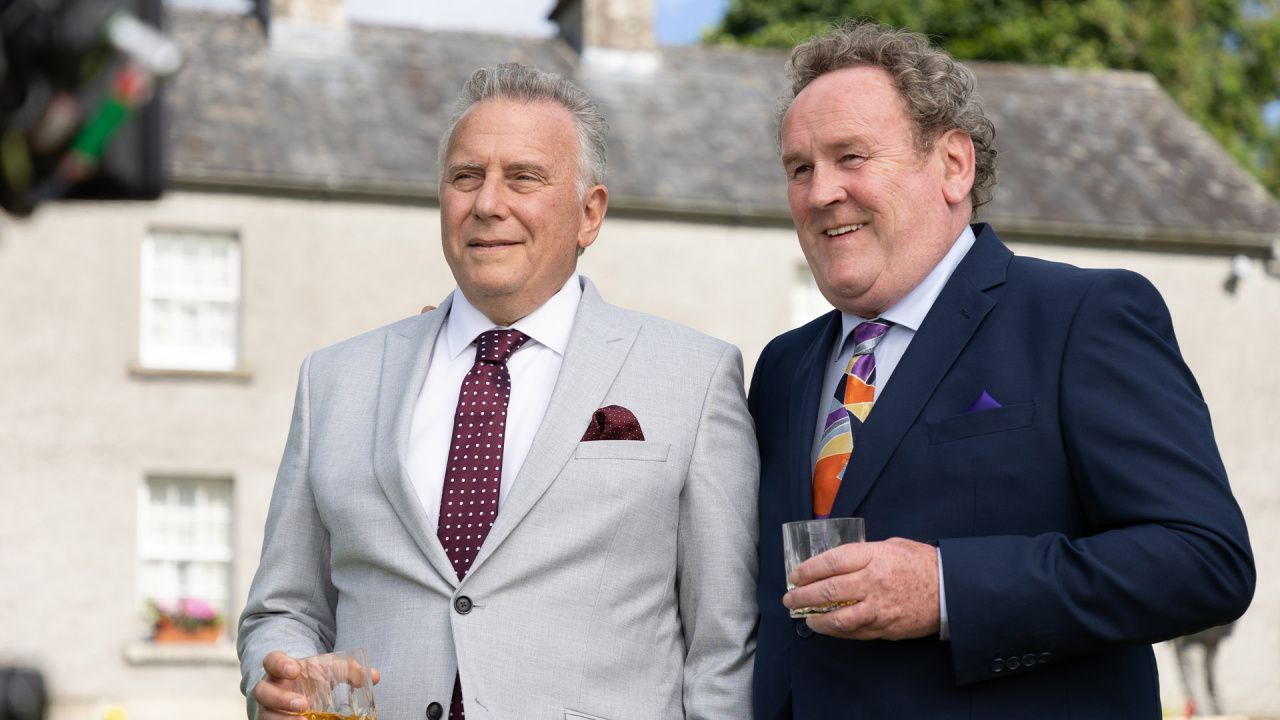
(L to R) Paul Reiser and Colm Meaney in ‘The Problem with People’. Photo: Quiver Distribution.
Opening in theaters on October 4th is the new comedy ‘The Problem with People‘ which was directed by Chris Cottam (‘The Lives of the Saints’), written by Paul Reiser (‘Aliens’, ‘Beverly Hills Cop’) and Wally Marzano-Lesnevich (‘Almost Paris’), and stars Reiser, Colm Meaney (‘Layer Cake’), and Jane Levy (‘Evil Dead’),
Moviefone recently had the pleasure of speaking with Paul Reiser and Colm Meaney about their work on ‘The Problem with People’, Reiser’s work developing the screenplay, the relationship between the two characters and their conflict, shooting in Ireland, and working with each other, as well as actress Jane Levy and director Chris Cottam.
Related Article: Eddie Murphy is More His Old, Entertaining Self in ‘Beverly Hills Cop: Axel F’
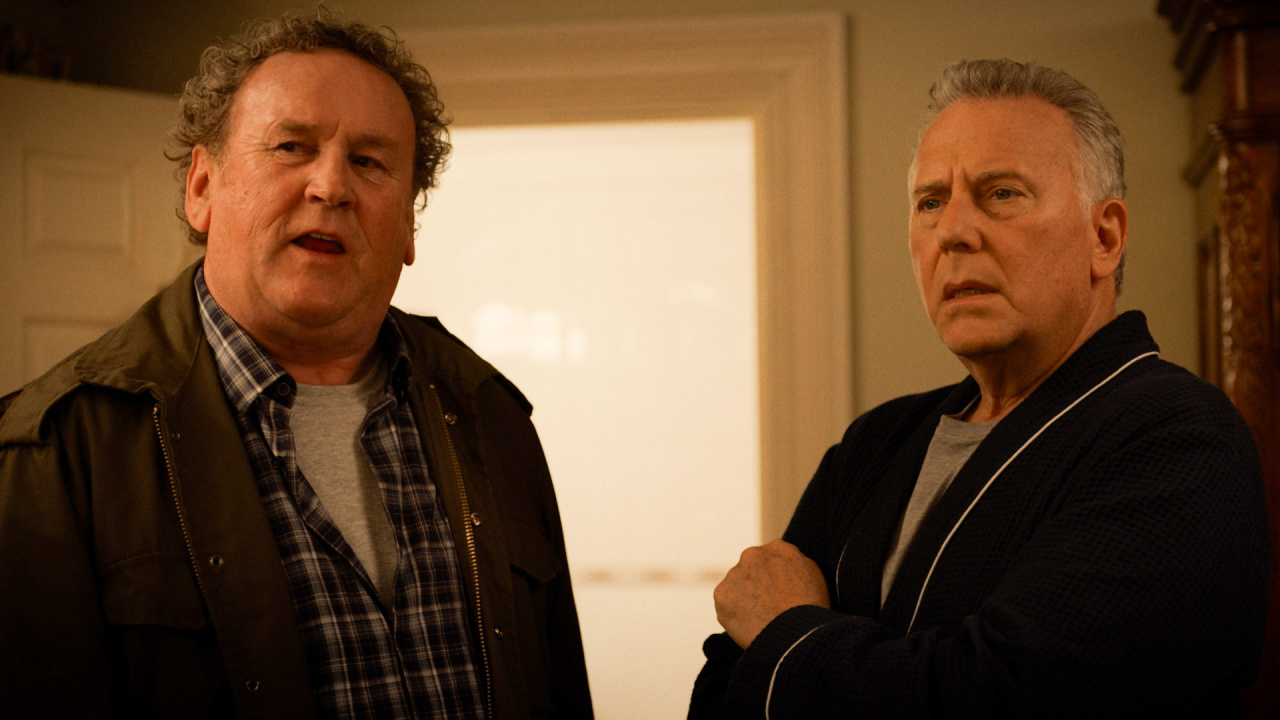
(L to R) Colm Meaney and Paul Reiser in ‘The Problem with People’. Photo: Quiver Distribution.
Moviefone: To begin with, Paul, can you talk about developing the screenplay and the themes you wanted to explore with this family comedy?
Paul Reiser: Good question. The inception was I always wanted to go to Ireland. I had been to Ireland years ago and loved it and was hungering to make a movie there and just be in that kind of environment. So, for many years, I would play with the idea, and I never found a story that, why is this American going to Ireland and what would be funny? So, we needed a conflict. Then I met my co-writer, Wally, because it felt like I had been sitting with it long enough. I should probably bounce it off with somebody else. It’s always helpful. Then we came upon this story, and I wondered if it’s a family feud and the goal, so now there’s a reason for this. He’s going, he’s invited. It wasn’t even his idea. I’ve been invited by the long-lost cousin I’d never heard of to settle this silly generational fight. So I go, “That’s interesting. That’s fun to write and you know it’s going to go bad.” So, the idea that there’s two guys, good people, well-intended, very noble intentions who just can’t stop tripping over themselves and falling to their worst instincts. That’s a fun thing to write. Then getting to play opposite Colm Meaney to do it, well, that was a dream. So, every family, I don’t know any family that doesn’t have some crap that they’re going through. This sister doesn’t talk to that brother. It’s like, “Why? I don’t even remember.” It’s just been nine years. I remember I’ve had stuff in my family, and I thought, let me see if I can get together. I remember I once planned a family trip and it blew up on me. It was like, “Well, that was bad. We aren’t doing that again.” So, I’ve always been fascinated by why do people cross each other? Why is there such suspicion and how could we possibly make it otherwise? Hopefully this movie is a fun, funny example of people trying to resolve conflicts to the best of their limited abilities.
MF: Colm, what was your first reaction to Paul’s screenplay and the relationship between these two cousins?
Colm Meaney: I loved it. I absolutely loved it. It kind of came out of the blue. I mean, I was a fan of Paul’s. I admired his work for years, but I thought, “Oh, he wrote a script set in Ireland?” I didn’t know he was a writer. I’ve said a few times before, as an Irish actor, you tend to approach scripts written by Americans set in Ireland with a little bit of trepidation because of past faux pas. It’s a very outdated and kind of strange view of Ireland as this kind of stuck in the Middle Ages or something. Ireland is a modern country. When I read the script, it was thrilling to read a script that captured the kind of Ireland of today, so accurately and so well, and yet was able to incorporate into that in many ways, Irish humor, in terms of people’s attitudes to each other and the exchanges they might have. I thought Paul had spent years in Ireland for some reason and I thought, “This is great. This is just so good.” The dialogue was wonderful. It made me laugh. I told Paul the other night, I saw the film for the first time the other night. It made me cry in three or four places, which is quite an achievement. I don’t do that. That was my reaction to the script, and it just got better and better from there. It became a real joy to do, and it’s a real tribute to Paul’s soul, for want of a better word, that he was able to achieve this in this script.
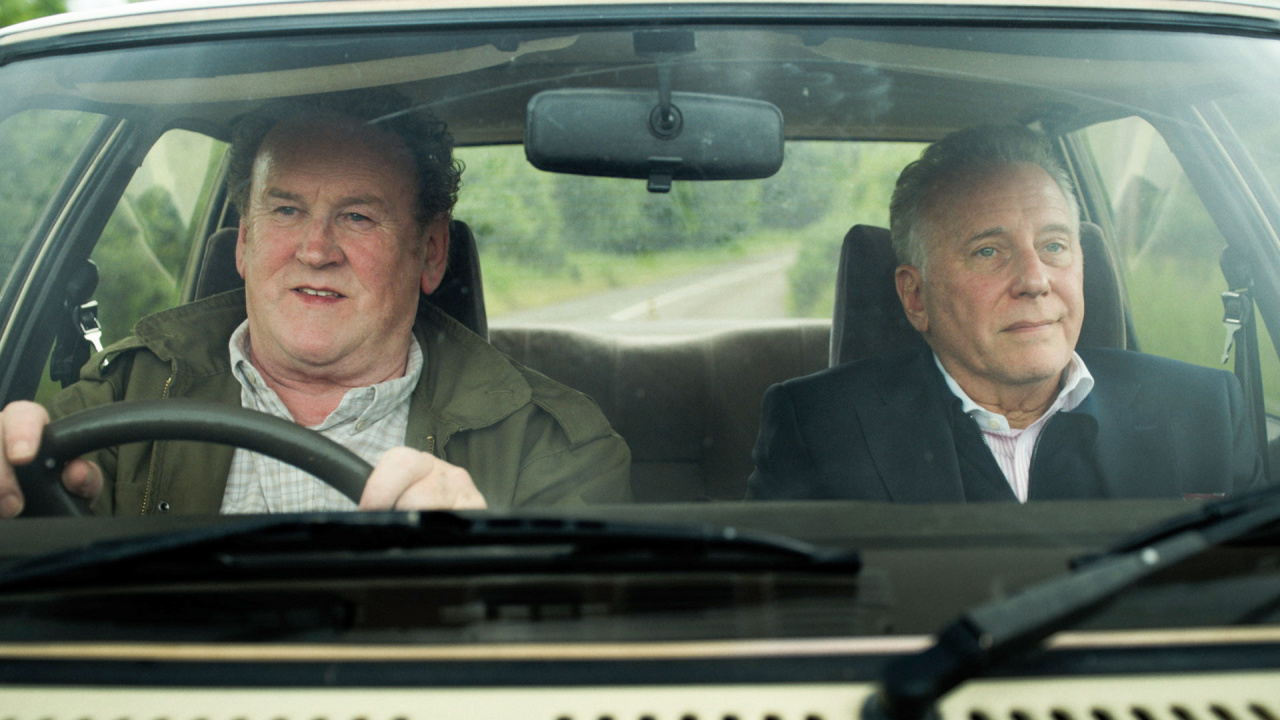
(L to R) Colm Meaney and Paul Reiser in ‘The Problem with People’. Photo: Quiver Distribution.
MF: Paul, why was Chris Cottam the right person to direct this movie and tell this story?
PR: He’s British, but he’s shot and worked a lot in Ireland and done a lot of, almost mostly comedy, and a great visual sense. He’s a very successful commercial director, and we hit it off and he really got the script in all the best ways. I know when somebody says, “Oh, I read the script and I liked this scene,” I went, “Well, okay.” If somebody goes, “You know that little thing that doesn’t look like it’s anything, I love that.” I went, “Okay, this is the guy for me.” But he was very committed to doing everything authentically. He said, “If nothing else, I want the audience in Ireland to go, ‘yes, that’s factual. That’s not too cutesy. It’s not too romanticized.'” Other than Jane Levy and I, the cast is entirely Irish. All the actors and all the background actors. The sets, we didn’t build any sets, those were real places. But you know, it’s funny, you talk about a sense of humor. The first scene, and I remember we had this idea right off the top, when Colm’s character picks me up at the train station, and we’re driving and there’s that awkwardness of like, “Oh, we’ve never met, but we are both friendly.” What was written in the script, it’s like they should be friends. They almost have the same sense of humor, but it’s not locking. They’re just, “What’s wrong with him? What’s wrong with him?” It’s like, that’s where it starts. It’s like, “Okay, I made a joke. He didn’t get the joke.” He’s going, “He didn’t get my joke either.” I’m like, that’s the beginning of trouble right there because he didn’t get the joke.
MF: Colm, can you talk about the dying wish Ciáran’s father makes and what happens when he meets Barry?
CM: Well, it’s an imposition. My dad is a pain in the ass. He’s been dying for the last 35 years. I mean, I take care of him, and I look after him. I had been married previously, so I lived out of the house. But since my divorce, I’ve come back to take care of him and I’m doing it, but it’s a pain in the ass. He really is. Now this, “Go find this cousin in New York,” for God’s sake, you know.
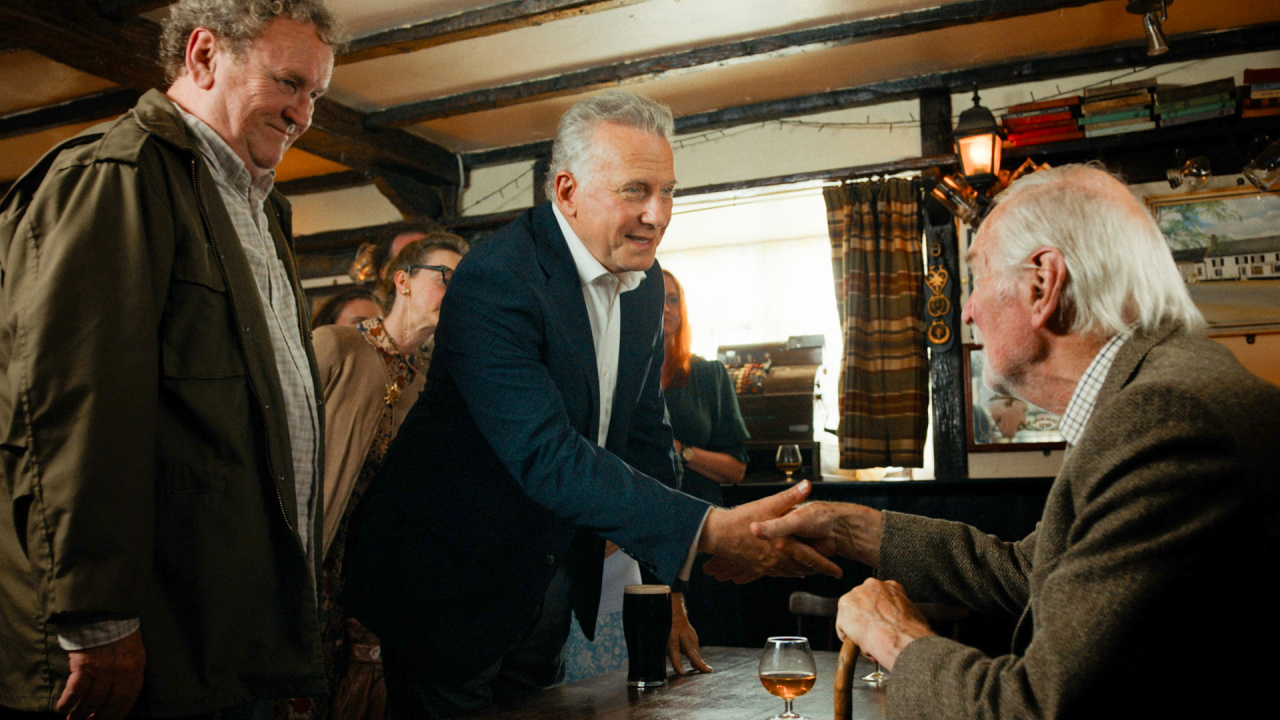
(L to R) Colm Meaney and Paul Reiser in ‘The Problem with People’. Photo: Quiver Distribution.
MF: Paul, can you talk about Barry’s reaction to receiving a call from his long-lost cousin, and how things begin to go wrong between them?
PR: Yeah. He goes, “I want you to do something.” “No, I want you to go find a guy that you never heard of and don’t know where to look.” But what was from the get-go and was always in my mind for the first scene, we meet Colm, who is just over it. We meet him and there’s a beautiful rainbow. He goes, “Yeah, I’ve seen it. I don’t care. You’re not impressing me.” Colm, personally, is a force. I mean, he’s just a big strong personality. To see him, his character bullied and beaten down by his frail father. It’s like, that’s funny to see this guy and you see, “Go find him.” You see Colm and it’s like, “Oh, this poor guy.” He’s been in this unglamorous business running the funeral parlor, taking care of his father, and he just wants to get out of there and he wants to see the world. Here’s me in the thick of the action in New York like, “I would just love to sit by a cottage by a lake.” So, we’re just in the wrong place, is all it is. Then we hopefully get closer to our intended goals. But that from the beginning of him being obligated, you also are right away like this guy, like he’s taking care of his old man, for God’s sake. He must be a good fella. To me, the shorthand is when the phone rings and anybody calls on a landline, it isn’t for you. So, I literally, I answer the phone, “I’m not interested.” “Do I have the right number?” “I doubt it.” It’s like there’s just a huge veneer of skepticism and impatience. Then he says the right thing. He went, “Was your father’s name Joseph? Do you by chance have relatives in Ireland?” I’m like, “Oh, actually, I don’t know who you are, but that’s not untrue.” He slowly gets under my skin and the skepticism is there and Jane Levy goes, “You didn’t think it was a scam?” “Oh, I thought it was a scam, believe me, of course. But no, he said some right things.” Even then it takes my daughter to say, “I think you should go. I got things under control. You can stop worrying. Go take it easy.” That’s how I go places by the way. It’s never my own choice. It’s like, “We can’t say no to this invitation.” All right. That’s the only way I go anywhere.
MF: Paul, can you talk about Barry’s relationship with his daughter and working with Jane Levy?
PR: She doesn’t have that much screen time, but she’s just so powerful and great. I was saying the other night at the screening, there’s a scene where she gets a call and she gets teary-eyed, and there’s no dialogue. I just start watering every time I see her face, I go, “Wow, I don’t even know what that is. Is that acting?” She’s just so powerful and good. As it turns out, I grew up with her dad. Her dad is an old buddy of mine. That’s not how she got the job. I knew her as an actress. Then way later (I realized) I grew up with (her dad), we were in a band. I played keyboards. He was a guitar player. We were a very bad band in 1969 and 1970. We made over $300 in over seven years. But to play her father was instinctive. It’s like, she is my friend’s daughter, so it’s close enough. But we were the only Americans. Everybody else, it was a purely Irish cast and crew.
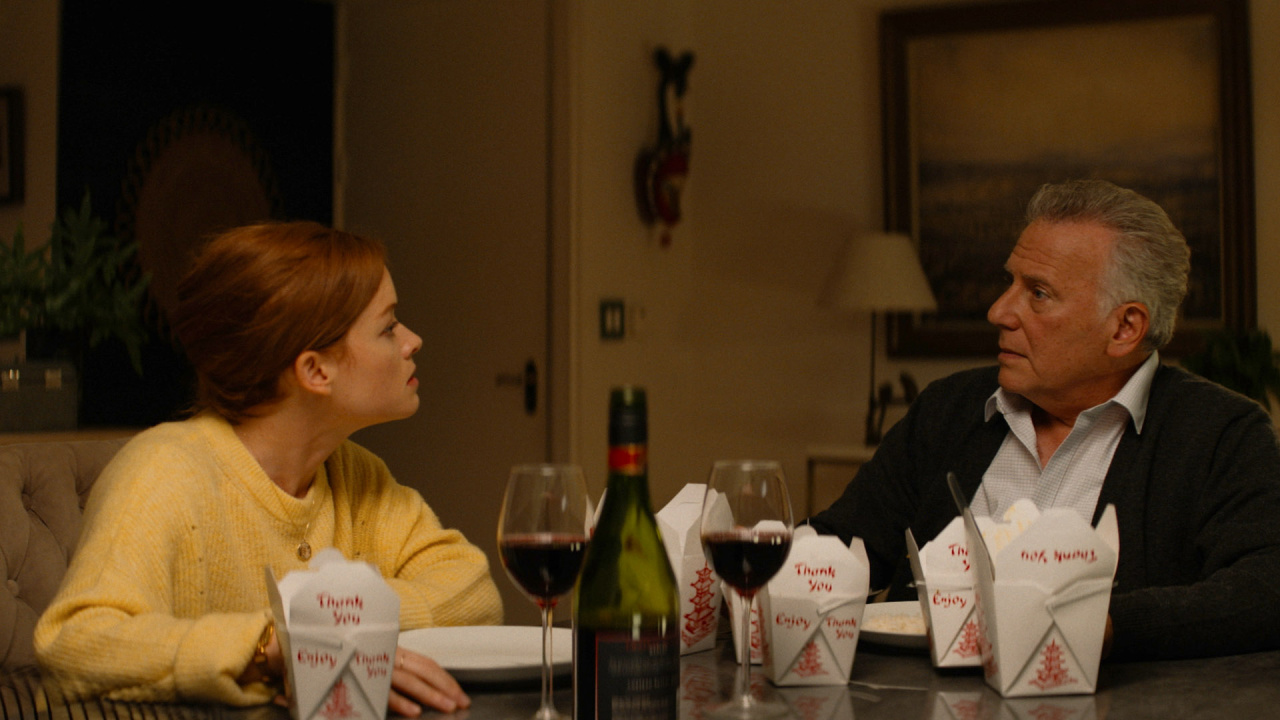
(L to R) Jane Levy and Paul Reiser in ‘The Problem with People’. Photo: Quiver Distribution.
MF: Colm, as an Irishman yourself, what was it like shooting a movie in Ireland with a predominantly Irish cast?
CM: It was wonderful there, but that again came from the nature of the project and the joy and all that. I mean, I’ve been on some tough shoots in Ireland, as well. But I always enjoyed working in Ireland. As time goes on and the older I get, I feel very drawn to our work in Ireland to be there. But yeah, I really enjoy working and now there’s good facilities and terrific crews, and it’s not a hardship to go and work in Ireland anymore like it used to be.
MF: Colm, what was your experience like working with Paul?
CM: We only met the week we started shooting. We’d spoken to each other and texted each other over the three years that Paul had spoken about, trying to get the thing up and running. We kept in touch intermittently and we got on as you do to the extent that you can on the phone. But then we first met in Dublin just the week we started shooting and had a pint. I think we just hit it off and we enjoyed each other’s company. Then when the actual work started, it just clicked. He is a wonderful man to spend time with, wonderful company.
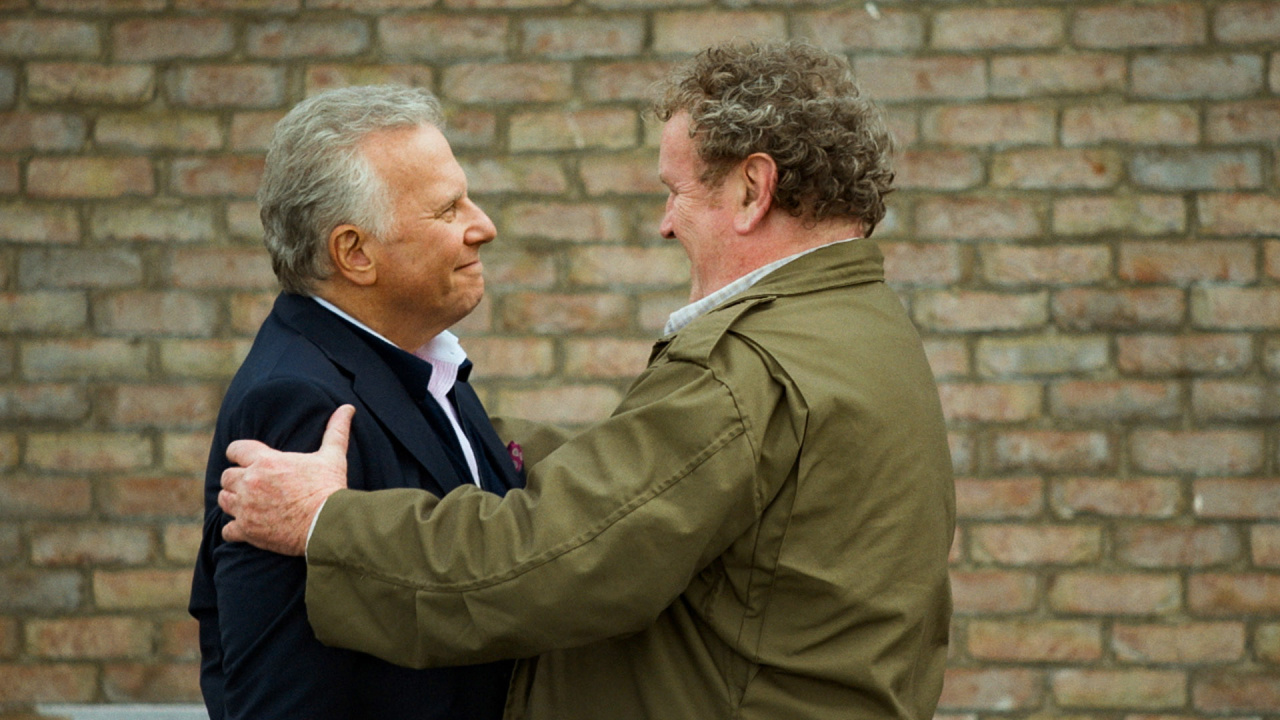
(L to R) Paul Reiser and Colm Meaney in ‘The Problem with People’. Photo: Quiver Distribution.
MF: Finally, Paul, what was your experience like working with Colm?
PR: It was lovely. I was reminded, somewhere in the middle of the shoot, Colm says, “How’s it all going, producing?” I went, “Yeah, it’s good.” He goes, “Everything’s okay?” I went, “Yeah, did I miss a meeting? ” He goes, “No, you seem like very calm.” I went, “I don’t know. It’s all going well.” There was something very blessed about the whole production. We have beautiful weather. A lot of it is, again, to do with our director Chris who has a great sense of humor and a great lightness of touch and great preparation. There’s usually chaos, trauma and drama. As far as we know, that didn’t happen. I’m happy to say and report that people do see it on the film. They go, “You guys look like you were having fun.” I go. “We really did.” It was really a lovely experience, and we hope everybody goes see it.
“Give peace a chance. Fat chance.”
1 hr 42 min
Two estranged cousins who never knew each other tries to make amends for many generations of family dispute. Read the Plot
What is the plot of ‘The Problem with People’?
Two distant cousins (Paul Reiser and Colm Meaney) who’ve never met – one in NYC, the other in the smallest town there is in Ireland – come together to finally put an end to a generations-long family feud. It doesn’t go well. ‘The Problem with People’, set in beautifully lush Irish countryside, is a heartwarming comedy about family, world peace … and sheep.
Who is in the cast of ‘The Problem with People’?
- Colm Meaney as Ciáran’
- Paul Reiser as Barry
- Jane Levy as Natalya
- Lucianne McEvoy as Fiona
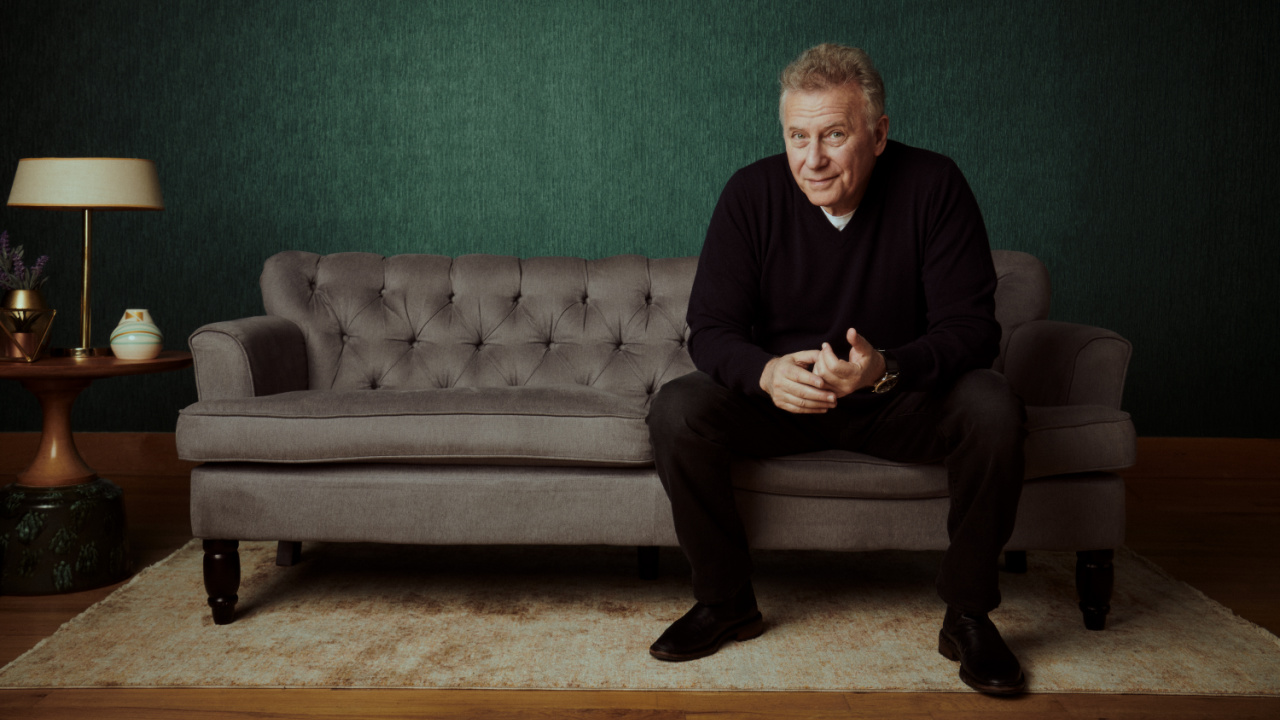
Paul Reiser stars in ‘The Problem with People’. Photo: Quiver Distribution.

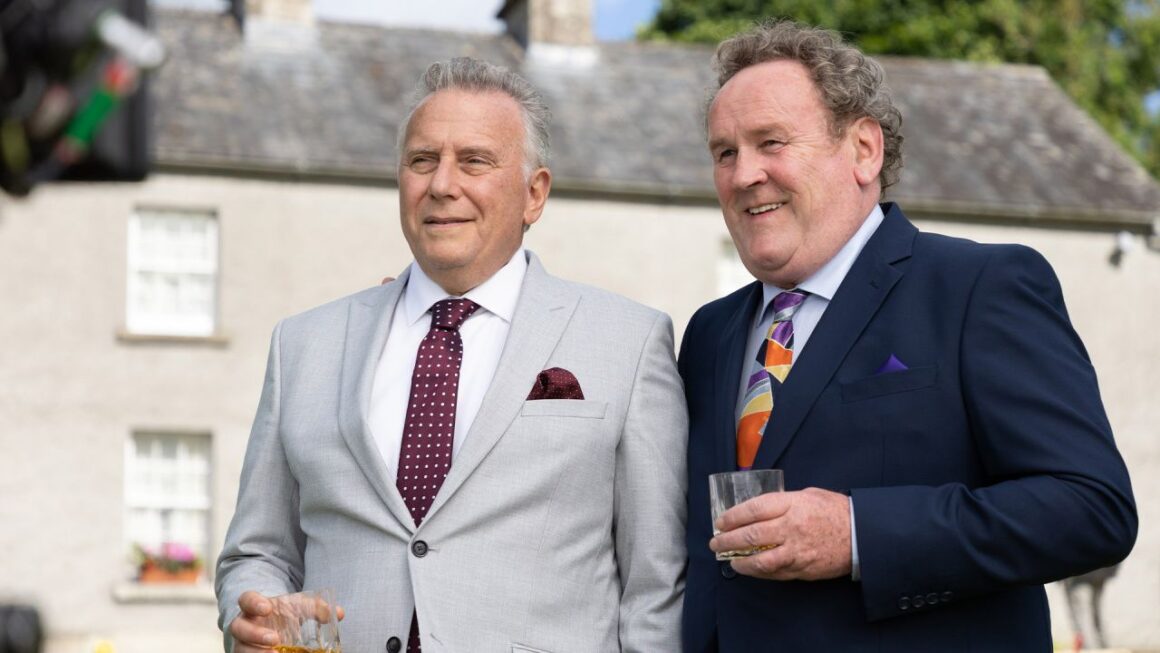
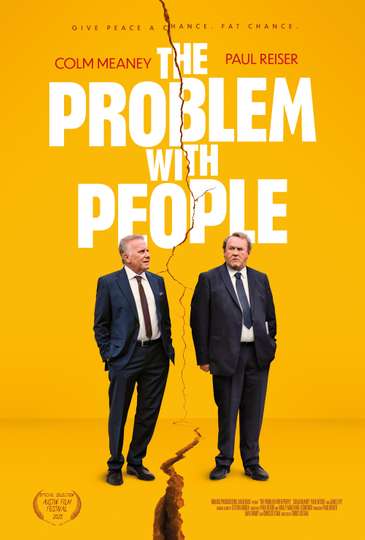
Leave a Reply